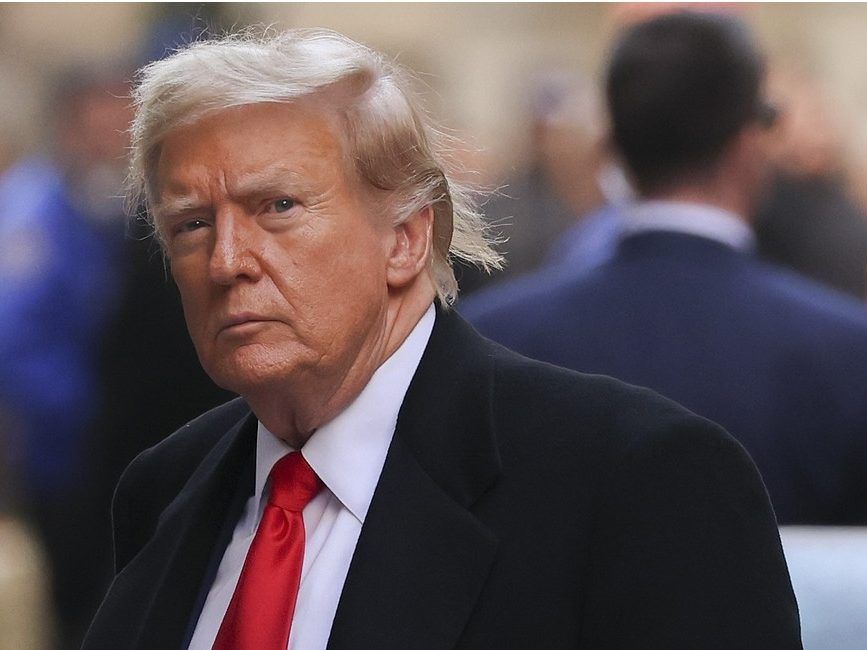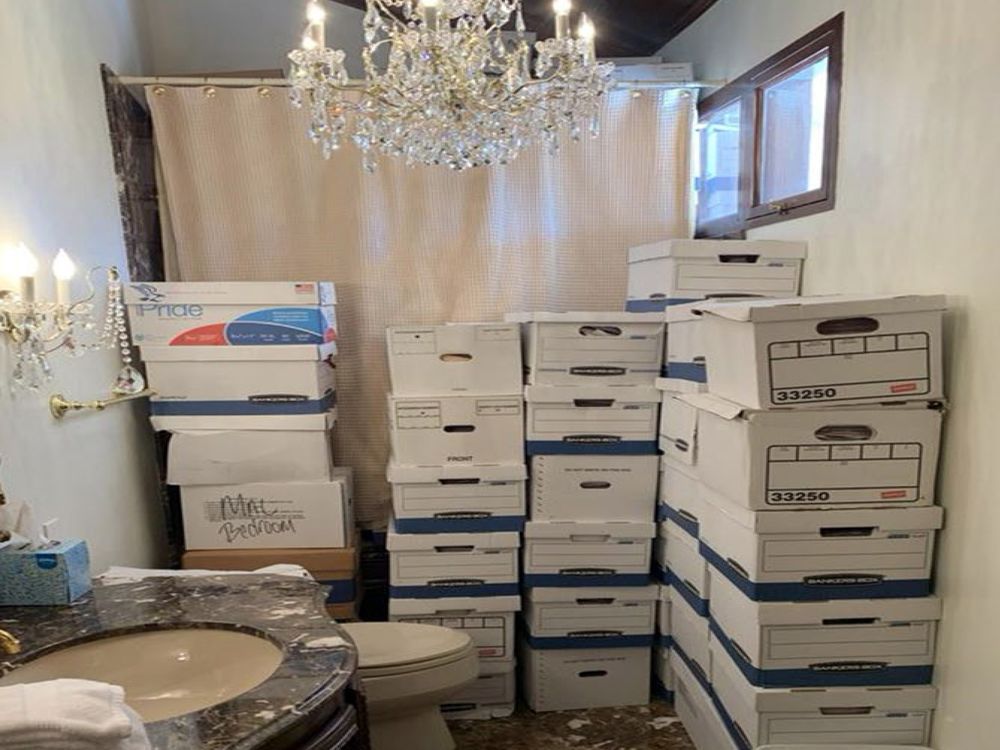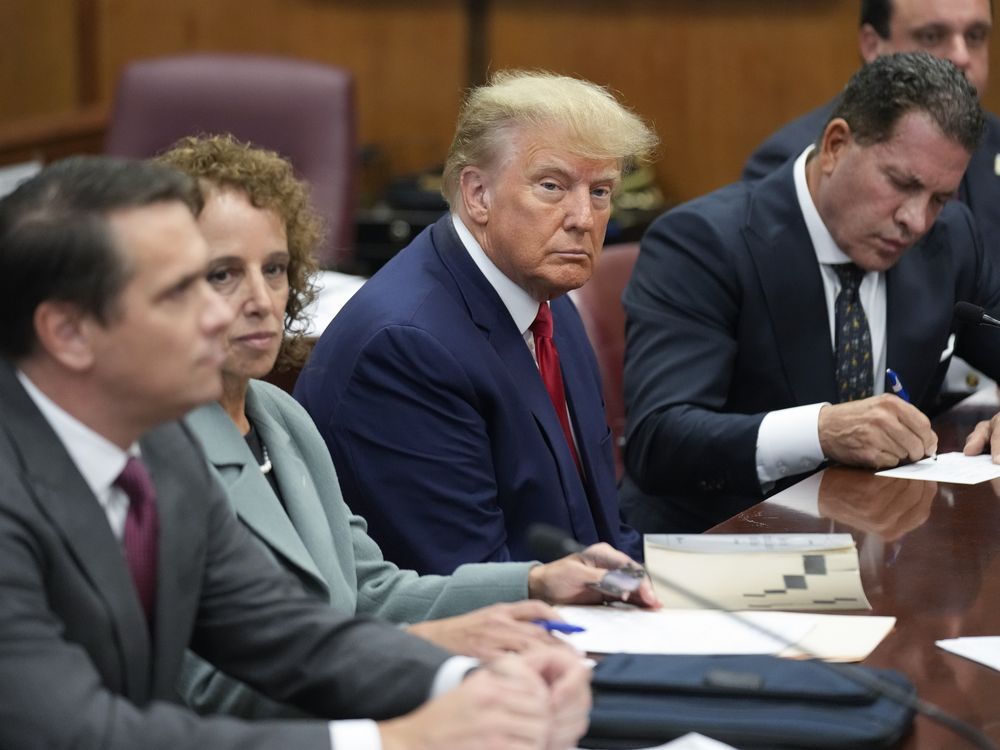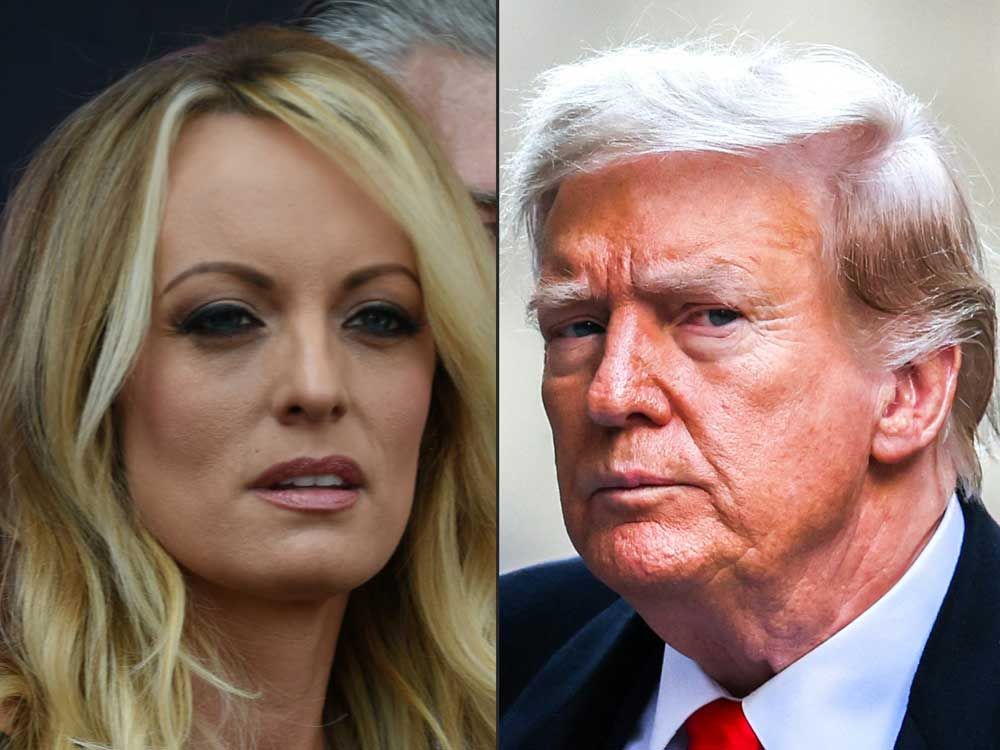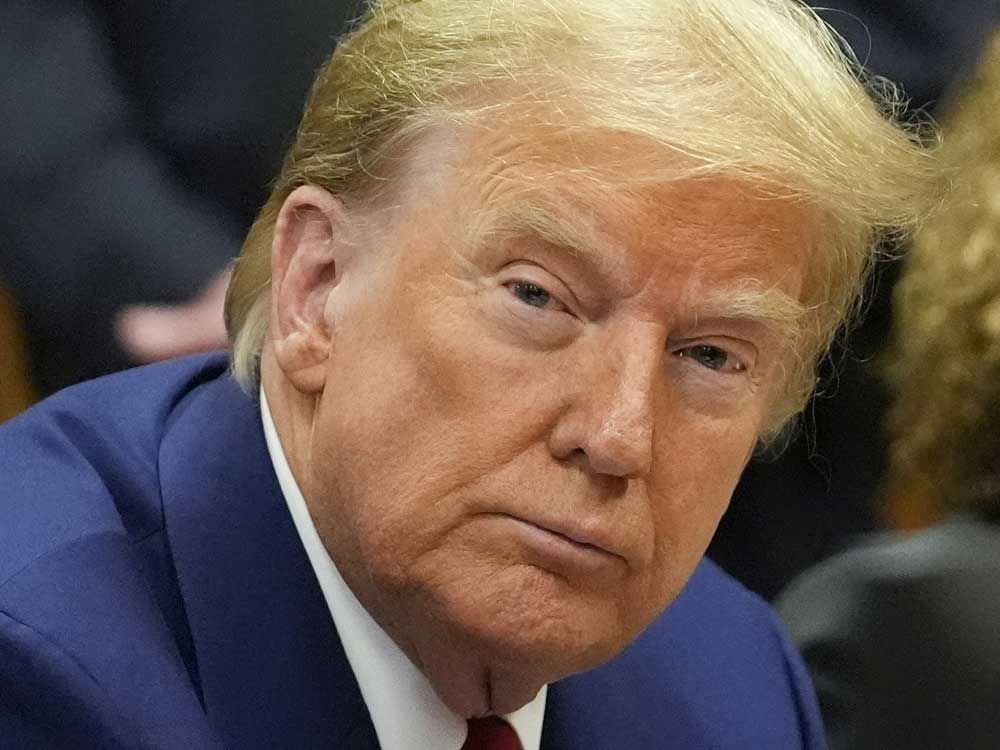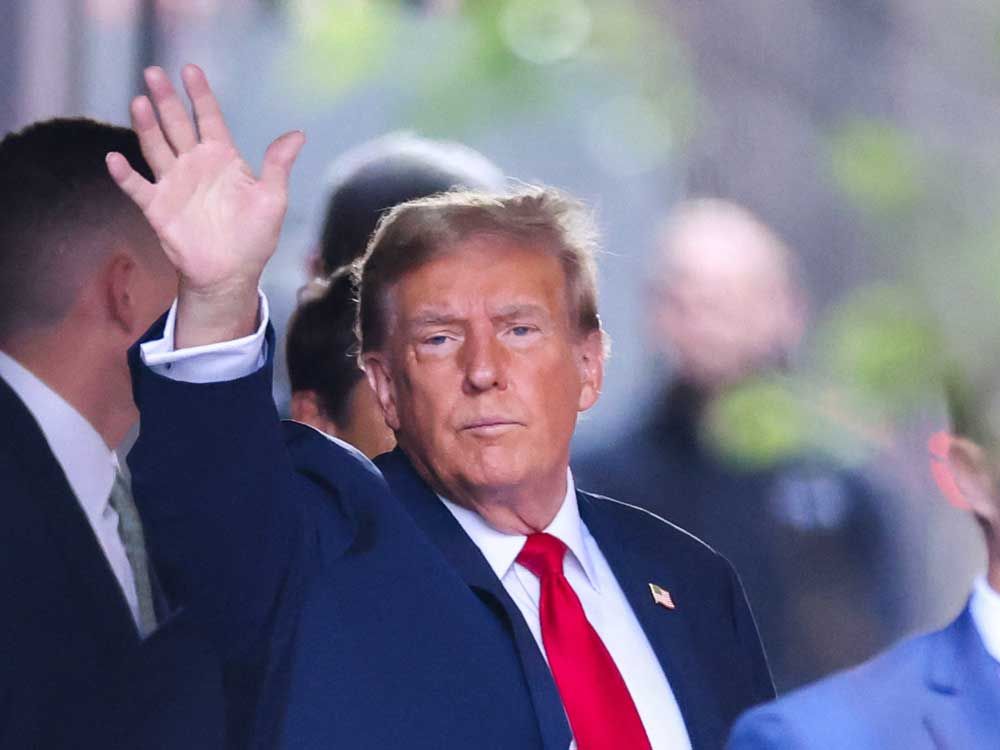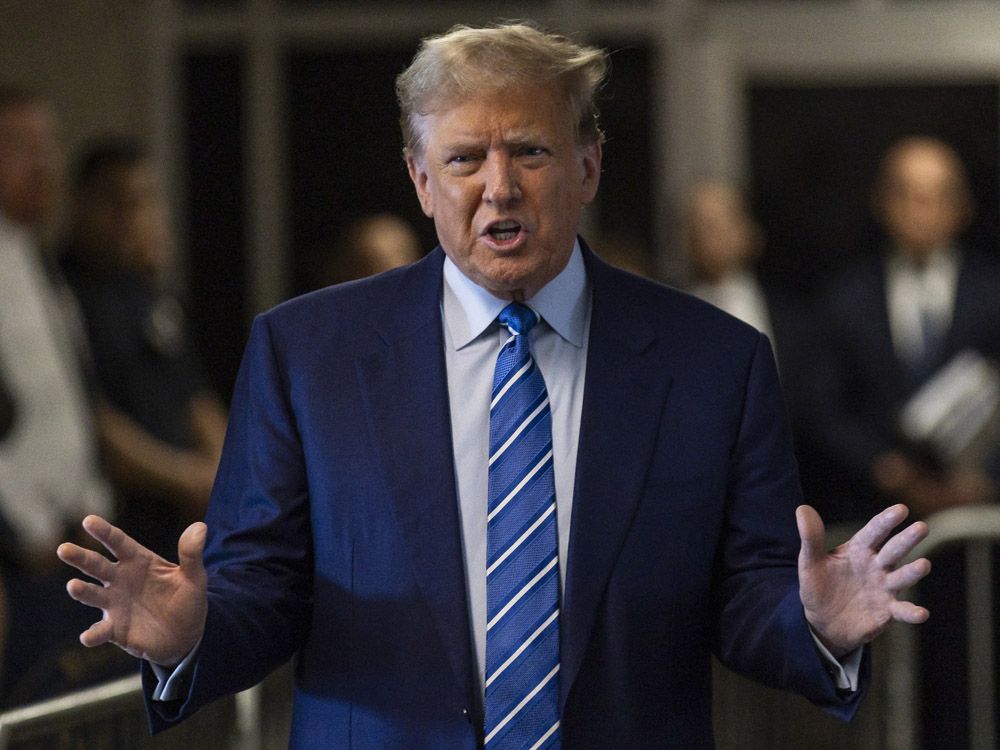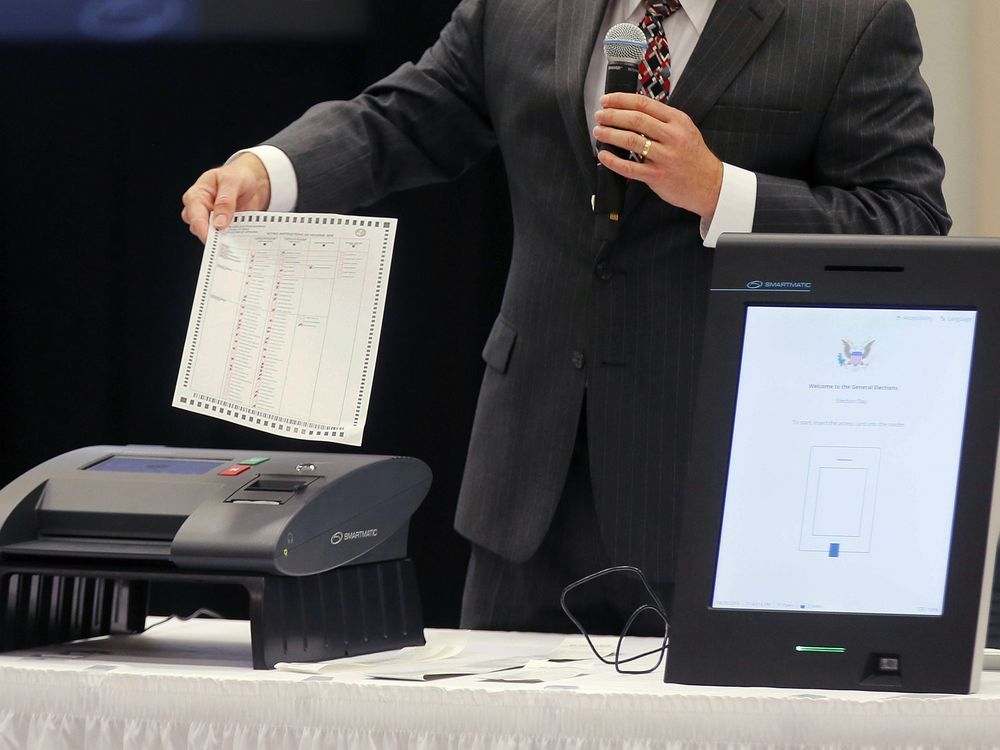Judge rejects Trump’s First Amendment challenge to indictment in Georgia election case
Author of the article:Associated Press
Associated Press
Kate Brumback
Published Apr 04, 2024 • 3 minute read
Georgia-Election-Indictment
ATLANTA (AP) — The judge overseeing the Georgia election interference case against Donald Trump and others rejected on Thursday arguments by the former president that the indictment seeks to criminalize political speech protected by the First Amendment.
The indictment issued in August by a Fulton County grand jury accused Trump and 18 others of participating in a wide-ranging scheme to illegally try to overturn the 2020 presidential election in Georgia after the Republican incumbent narrowly lost the state to Democrat Joe Biden. Trump’s attorneys argued that all the charges against him involved political speech that is protected even if the speech ends up being false.
But Fulton County Superior Court Judge Scott McAfee wrote that at this pretrial stage he must consider the language of the indictment in a light favorable to the prosecution. The charges do not suggest that Trump and the others are being prosecuted simply for making false statements but rather that they acted willfully and knowingly to harm the government, he wrote.
“Even core political speech addressing matters of public concern is not impenetrable from prosecution if allegedly used to further criminal activity,” the judge wrote.
He added that even lawful acts involving speech protected by the First Amendment can be used to support a charge under Georgia’s anti-racketeering law, which prosecutors used in this case.
But McAfee did leave open the possibility that Trump and others could raise similar arguments “at the appropriate time after the establishment of a factual record.”
Steve Sadow, Trump’s lead attorney in Georgia, said in an email that Trump and the other defendants “respectfully disagree with Judge McAfee’s order and will continue to evaluate their options regarding the First Amendment challenges.” He called it significant that McAfee made it clear they could raise their challenges again later.
A spokesperson for Fulton County District Attorney Fani Willis declined to comment.
McAfee’s order echoes an earlier ruling in the federal election interference case against Trump brought by Department of Justice special counsel Jack Smith. U.S. District Judge Tanya Chutkan wrote in December that “it is well established that the First Amendment does not protect speech that is used as an instrument of a crime.”
McAfee also rejected arguments from Trump co-defendant and former Georgia Republican Party chairman David Shafer challenging certain charges and asking that certain phrases be struck from the indictment. Most of the charges against Shafer have to do with his involvement in the casting of Electoral College votes for Trump by a group of Georgia Republicans even though the state’s election had been certified in favor of Biden.
His lawyers argue that the following phrases are used to assert that the Democratic slate of electors was valid and the Republican slate was not: “duly elected and qualified presidential electors,” “false Electoral College votes” and “lawful electoral votes.” The lawyers said those are “prejudicial legal conclusions” about issues that should be decided by the judge or by the jury at trial.
McAfee wrote that “the challenged language is not prejudicial because it accurately describes the alleged offenses and makes the charges more easily understood by providing a basis to differentiate the allegedly lawful and unlawful acts of presidential electors (as theorized by the State.)” He noted that jurors are repeatedly instructed that an indictment should not be considered evidence.
No trial date has been set for the sprawling Georgia case, one of four criminal cases pending against Trump as he seeks to return to the White House, though Willis has asked for the trial to begin in August. Four people have pleaded guilty after reaching deals with prosecutors. Trump and the others who remain have pleaded not guilty.
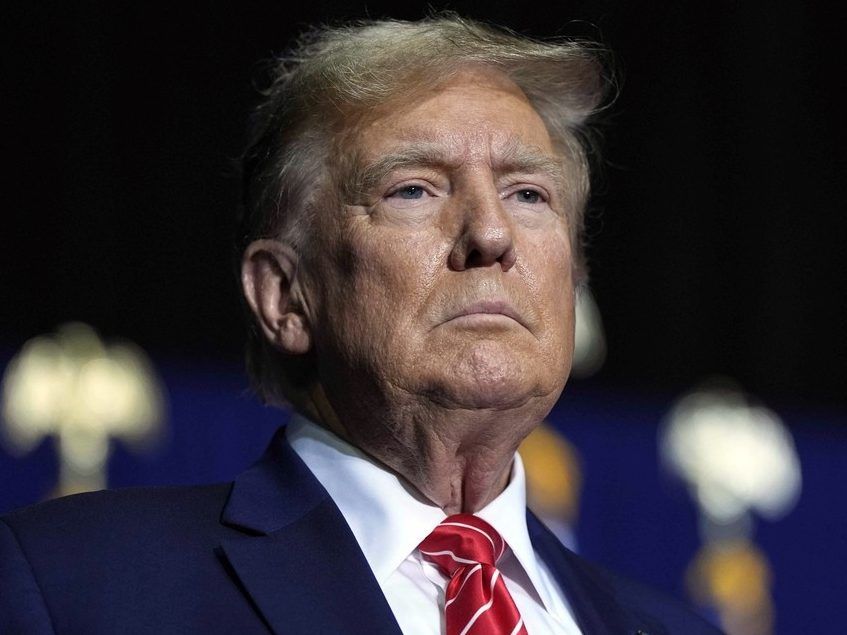
 torontosun.com
torontosun.com
Author of the article:Associated Press
Associated Press
Kate Brumback
Published Apr 04, 2024 • 3 minute read
Georgia-Election-Indictment
ATLANTA (AP) — The judge overseeing the Georgia election interference case against Donald Trump and others rejected on Thursday arguments by the former president that the indictment seeks to criminalize political speech protected by the First Amendment.
The indictment issued in August by a Fulton County grand jury accused Trump and 18 others of participating in a wide-ranging scheme to illegally try to overturn the 2020 presidential election in Georgia after the Republican incumbent narrowly lost the state to Democrat Joe Biden. Trump’s attorneys argued that all the charges against him involved political speech that is protected even if the speech ends up being false.
But Fulton County Superior Court Judge Scott McAfee wrote that at this pretrial stage he must consider the language of the indictment in a light favorable to the prosecution. The charges do not suggest that Trump and the others are being prosecuted simply for making false statements but rather that they acted willfully and knowingly to harm the government, he wrote.
“Even core political speech addressing matters of public concern is not impenetrable from prosecution if allegedly used to further criminal activity,” the judge wrote.
He added that even lawful acts involving speech protected by the First Amendment can be used to support a charge under Georgia’s anti-racketeering law, which prosecutors used in this case.
But McAfee did leave open the possibility that Trump and others could raise similar arguments “at the appropriate time after the establishment of a factual record.”
Steve Sadow, Trump’s lead attorney in Georgia, said in an email that Trump and the other defendants “respectfully disagree with Judge McAfee’s order and will continue to evaluate their options regarding the First Amendment challenges.” He called it significant that McAfee made it clear they could raise their challenges again later.
A spokesperson for Fulton County District Attorney Fani Willis declined to comment.
McAfee’s order echoes an earlier ruling in the federal election interference case against Trump brought by Department of Justice special counsel Jack Smith. U.S. District Judge Tanya Chutkan wrote in December that “it is well established that the First Amendment does not protect speech that is used as an instrument of a crime.”
McAfee also rejected arguments from Trump co-defendant and former Georgia Republican Party chairman David Shafer challenging certain charges and asking that certain phrases be struck from the indictment. Most of the charges against Shafer have to do with his involvement in the casting of Electoral College votes for Trump by a group of Georgia Republicans even though the state’s election had been certified in favor of Biden.
His lawyers argue that the following phrases are used to assert that the Democratic slate of electors was valid and the Republican slate was not: “duly elected and qualified presidential electors,” “false Electoral College votes” and “lawful electoral votes.” The lawyers said those are “prejudicial legal conclusions” about issues that should be decided by the judge or by the jury at trial.
McAfee wrote that “the challenged language is not prejudicial because it accurately describes the alleged offenses and makes the charges more easily understood by providing a basis to differentiate the allegedly lawful and unlawful acts of presidential electors (as theorized by the State.)” He noted that jurors are repeatedly instructed that an indictment should not be considered evidence.
No trial date has been set for the sprawling Georgia case, one of four criminal cases pending against Trump as he seeks to return to the White House, though Willis has asked for the trial to begin in August. Four people have pleaded guilty after reaching deals with prosecutors. Trump and the others who remain have pleaded not guilty.

Judge rejects Trump’s First Amendment challenge to indictment in Georgia election case
Attorneys argued that all the charges against him involved political speech that is protected even if the speech ends up being false.
